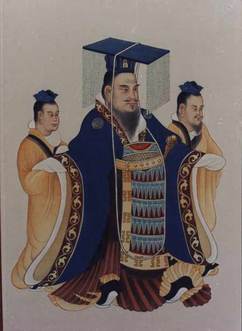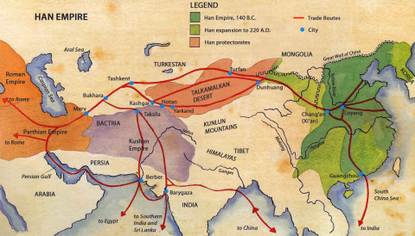Banner Image: A painting depicting Chinese emperor Wu of the Jin dynasty (265-420 ad)
Political Interactions
"The people [of Ta-yuan] are permanent dwellers and given to agriculture; and in their fields they grow rice and wheat. They have wine made of grapes and many good horses. The horses sweat blood and come from the stock of the "heavenly horse." They have walled cities and houses; the large and small cities belonging to them, fully seventy in number, contain an aggregate population of several hundreds of thousands..."
-Zhag Qian, envoy of Emperor Wu-Di


